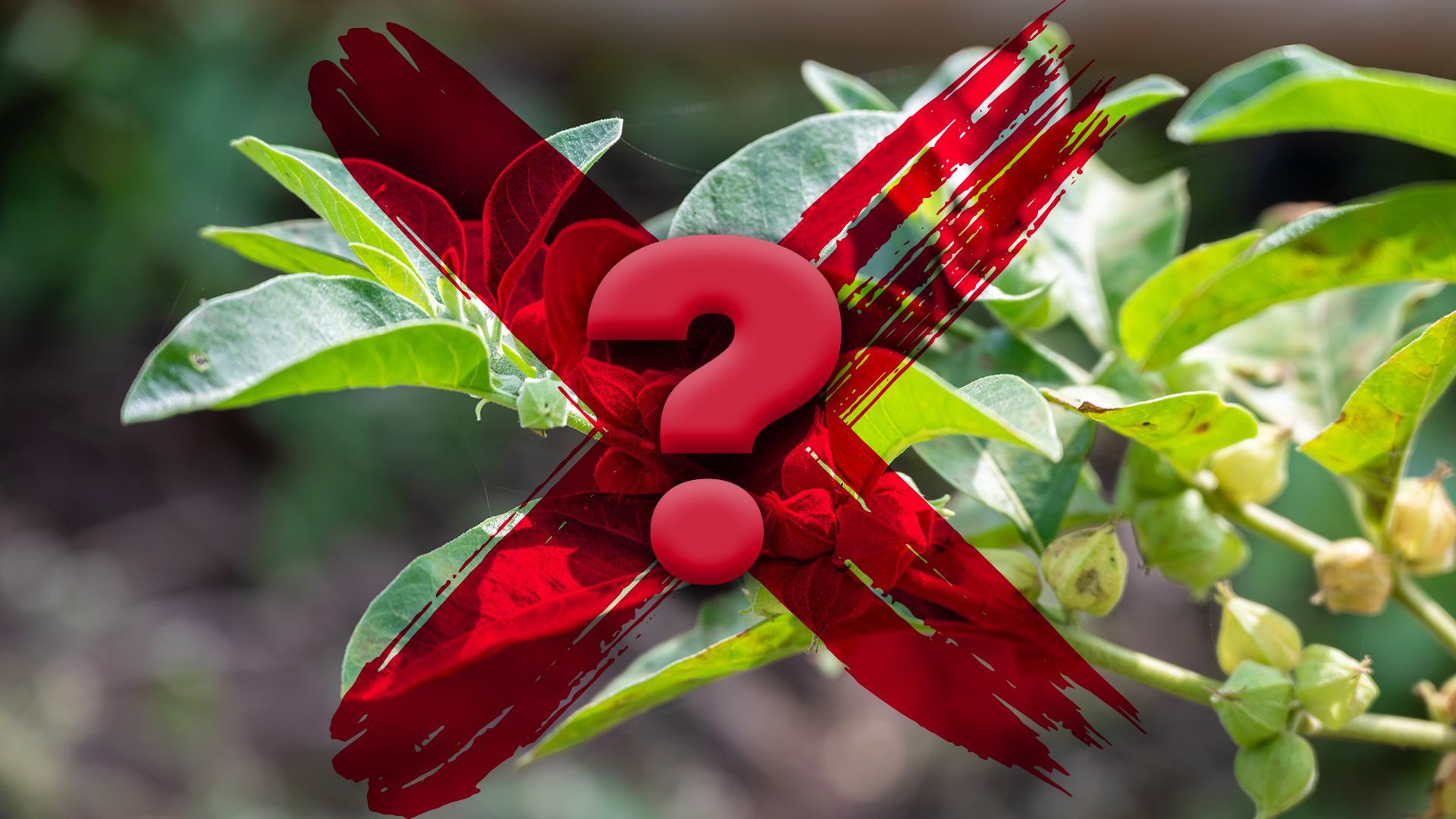Content Sections
Some European regulators are sounding warnings about the potential for toxicity of traditional herb, ashwagandha (Withania somnifera (L.) Dunal), one of the most widely used botanical supplements worldwide, because it contains pyrrolizidine alkaloids. Reports of liver injury associated with ashwagandha aren’t new, but warnings from regulators are becoming more commmon, with Denmark having brought in an actual ban for ashwagandha supplements, despite its long history of safe use. Now, The Netherlands is taking a close look at ashwagandha with a view to banning its use.
On 24 March 2025, the Alliance for Natural health Europe (ANH Europe), a non-profit organisation that aims to promote and protect natural health, submitted a response to the Dutch government's consultation process on the proposal to amend the Commodities Act Decree banning the very popular herb Ashwaganda completely.
ANH Europe strongly opposes the Dutch government's proposed ban of ashwagandha, an adaptogenic herb mainly used to improve resilience to stress. The organisation argues that the ban would be disproportionate, create legal uncertainty for other traditional herbs and potentially expose Dutch citizens to major health risks as these currently legal and subject to strict safety requirements - given their high popularity - will surely soon be replaced by inferior or adulterated products.
Submission summary
The Alliance for Natural Health Europe (ANH Europe) strongly opposes the Netherlands government's proposed ban on the Ayurvedic herb ashwagandha (Withania somnifera) that is a very popular adaptogenic herb used primarily to improve resilience to stress. The organisation argues that the ban would be disproportionate, create legal uncertainty for other traditional herbs, and potentially expose Dutch citizens to greater health risks from inferior or adulterated products.
- Lack of Proportionality and Scientific Basis
ANH Europe highlights that the proposed prohibition is not supported by robust scientific evidence. While there have been isolated reports of ashwagandha-related liver toxicity, the Dutch government has failed to establish causality using standard assessment methods (e.g., RUCAM scale). Furthermore, well-recognised monographs confirm the general safety of ashwagandha when used at recommended doses of up to 6.5g dry root (or equivalent) per day. The ban overlooks this established safety record and misrepresents the herb’s risk profile.
- Legal Uncertainty and Threat to Other Botanicals
Banning ashwagandha would create a precedent of legal uncertainty for many other traditional herbs with long histories of safe use, such as Rhodiola, Siberian ginseng, and Schisandra. This would undermine consumer access to natural health products and impose unjustified regulatory burdens on the herbal supplement industry.
- Increased Health Risks from Inferior Products
Prohibiting ashwagandha could drive the market underground, leading to the circulation of inferior or adulterated products, especially via online retailers. Such products, often lacking quality controls, could contain non-root parts or concentrated extracts with altered chemical profiles, increasing the risk of adverse effects. ANH Europe warns that the ban could well lead to consumers being exposed to greater health risks, rather than protecting them.
- Proposed Proportionate Regulation
Instead of an outright ban, ANH Europe recommends a proportionate risk management approach that includes:
- Daily dose limit of 6.5g dry root (or equivalent).
- Exclusion of non-root parts from food supplements.
- Mandatory warning labels advising against use during pregnancy.
ANH Europe urges the Dutch government to reconsider its ban, adopt a rational, evidence-based approach, and prioritise consumer choice and public health protection.
>>> Download ANH Europe’s full consultation response
>>> If you’re not already signed up for the ANH International weekly newsletter, sign up for free now using the SUBSCRIBE button at the top of our website – or better still – become a Pathfinder member and join the ANH-Intl tribe to enjoy benefits unique to our members.
>> Feel free to republish - just follow our Alliance for Natural Health International Re-publishing Guidelines
>>> Return to ANH International homepage








Comments
your voice counts
27 March 2025 at 10:53 am
Another witch hunt for an herb that's been used for eons by humans and doesn't remotely have the same safety concerns as regular drugs dispensed by pharma and should be being banned forever! Thank you for standing up and being the voice of opposition. We all know what this is really about. The members of the so called green parties in Europe are the most disastrous representatives in the history of Europe and don't even realise how they are being used.
Your voice counts
We welcome your comments and are very interested in your point of view, but we ask that you keep them relevant to the article, that they be civil and without commercial links. All comments are moderated prior to being published. We reserve the right to edit or not publish comments that we consider abusive or offensive.
There is extra content here from a third party provider. You will be unable to see this content unless you agree to allow Content Cookies. Cookie Preferences